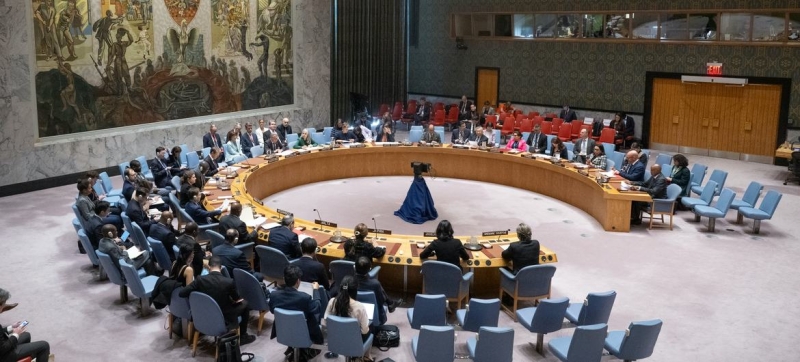
Security Council meeting. UN Security Council chief: Time for decisive action for peace in Sudan Peace and security
The people of Sudan are living through a nightmare of violence in which thousands of civilians have died and countless others have been subjected to “unimaginable atrocities,” including mass rape. These are the words of UN Secretary-General Antonio Guterres, speaking at the UN Security Council today.
Famine, disease, displacement
He recalled that the conflict in Sudan broke out a year and a half ago, and today, against the backdrop of a “full-scale humanitarian catastrophe,” almost 25 million people in the country need assistance. 750,000 people have found themselves in a situation classified by the UN as “catastrophic food insecurity,” and hunger reigns in areas hosting displaced persons in Northern Darfur.
Cholera, malaria, dengue fever, measles and rubella are spreading rapidly in Sudan, while critical civilian infrastructure, including hospitals and water and sanitation systems, has been destroyed.
Gutteres noted that Sudan has registered the world’s largest displacement crisis. More than 11 million people have fled their homes since April last year, nearly 3 million of them to neighboring countries.
Risk of regional instability
“We have consistently called on both sides to stop the fighting and sit down at the negotiating table. But instead of trying to reduce tensions, they are escalating military action,” the Secretary-General said.
He said “external forces are adding fuel to the fire” and noted the likelihood that the conflict in Sudan would trigger “regional instability from the Sahel to the Horn of Africa and the Red Sea.”
Ceasefire and diplomatic efforts
Guterres recalled Security Council resolution 2736 adopted earlier this year, which asked the UN chief to make recommendations on protecting civilians in Sudan. The secretary-general presented them last week. In particular, he once again called on the parties to immediately agree to a cessation of hostilities.
“Such an agreement should be translated into local truces and humanitarian pauses, which would create new opportunities for dialogue and lay the foundation for a comprehensive ceasefire,” Guterres said.
“At the same time, diplomatic efforts must be intensified to finally end the conflict, including support for the implementation of the commitments contained in the Jeddah Declaration,” he added, recalling the efforts of his Envoy for Sudan Ramtan Lamamra.
Protection of Civilians
The Secretary-General’s key recommendations include the protection of civilians. He asked for the support of the Security Council in this matter.
“Parties to the conflict bear the primary responsibility to ensure the protection of civilians,” the UN chief said.
“I am shocked by the continued attacks by the Rapid Reaction Force on civilians in El Fasher and surrounding areas, including in areas hosting internally displaced people where famine has been confirmed. I am also horrified by reports of attacks on civilians by forces associated with the Sudanese Armed Forces in Khartoum,” he added.
Perpetrators of serious violations of international humanitarian law must be held to account, Guterres stressed, and national and international human rights monitoring and investigation mechanisms must be able to document what is happening.
“There are currently no conditions for the successful deployment of United Nations forces to protect civilians in Sudan. The Secretariat stands ready to engage with the Council and others on a range of operational mechanisms that can make a significant contribution to reducing violence and protecting civilians,” the Secretary-General said.
Humanitarian Aid
Guterres also insists on the need to ensure uninterrupted humanitarian supplies to Sudan. He recalled that, despite ongoing challenges with access and funding, the UN and its partners provided assistance to 12 million people between January and September this year.
However, humanitarian operations continue to face serious obstacles.
“Many of those reached [by humanitarian organizations] were only assisted once. Some of the areas with the most acute needs remain completely cut off,” the UN chief said.
“Rapid, safe and unimpeded humanitarian access must be ensured along all necessary cross-border and frontline routes,” Guterres stressed.
He also noted that humanitarian operations in Sudan are not receiving full funding and called on donors to step up their efforts.
“Now is the time for action – decisive action – for peace for the people of Sudan,” the UN chief concluded.
